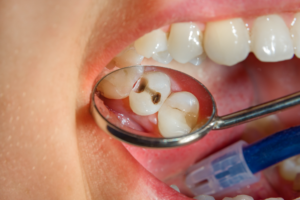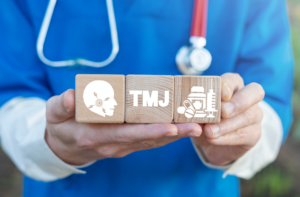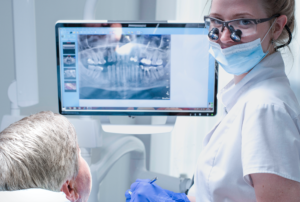
A: There are at least three main methods people use to have their teeth whitened. There are over-the-counter methods available in most pharmacies. There are methods that are done entirely within the dental office. Lastly, there are methods that involve having trays fitted by a dentist that are then worn at home. Over-the-counter methods are the least expensive. They do work to a certain extent, but tend to take longer and their “one size fits all” feature doesn’t work for everyone. Methods that are done entirely within the dental office and those involving custom-made trays by the dentist that are then worn at home both are more likely to brighten teeth more quickly and effectively. We choose to fabricate trays in our office for one major reason. All bleaching eventually fades and then requires rebleaching to regain that brighter smile. With “in-office only” methods, they need to be done entirely over at full fee. That fee is typically higher than the custom tray method. With the custom tray method, when rebleaching is needed, you still have the trays and the only expense with subsequent treatments is to purchase the tubes of bleach. That cost is minimal compared to starting all over again. Many of our patients choose the start of a new year as the perfect time to whiten their teeth.
If you, your family or friends need dental care, we would be honored to provide you with state-of-the-art dental care in our modern dental practice. Refer someone you love to someone you trust!
Presented as a service to the community by Doctors Hoover and Yanda,
39 Milford Drive, Hudson, Ohio 44236. 330-650-0360. www.drshooverandyanda.com

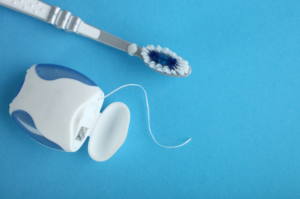
 Professionally, there are four main ways to deal with dental caries. These treatments, carried out by a dental professional, can help treat damage incurred from dental caries.
Professionally, there are four main ways to deal with dental caries. These treatments, carried out by a dental professional, can help treat damage incurred from dental caries.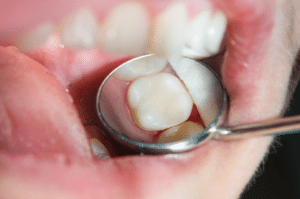 Professionally, there are four main ways to deal with dental caries. These treatments, carried out by a dental professional, can help treat damage incurred from dental caries.
Professionally, there are four main ways to deal with dental caries. These treatments, carried out by a dental professional, can help treat damage incurred from dental caries.